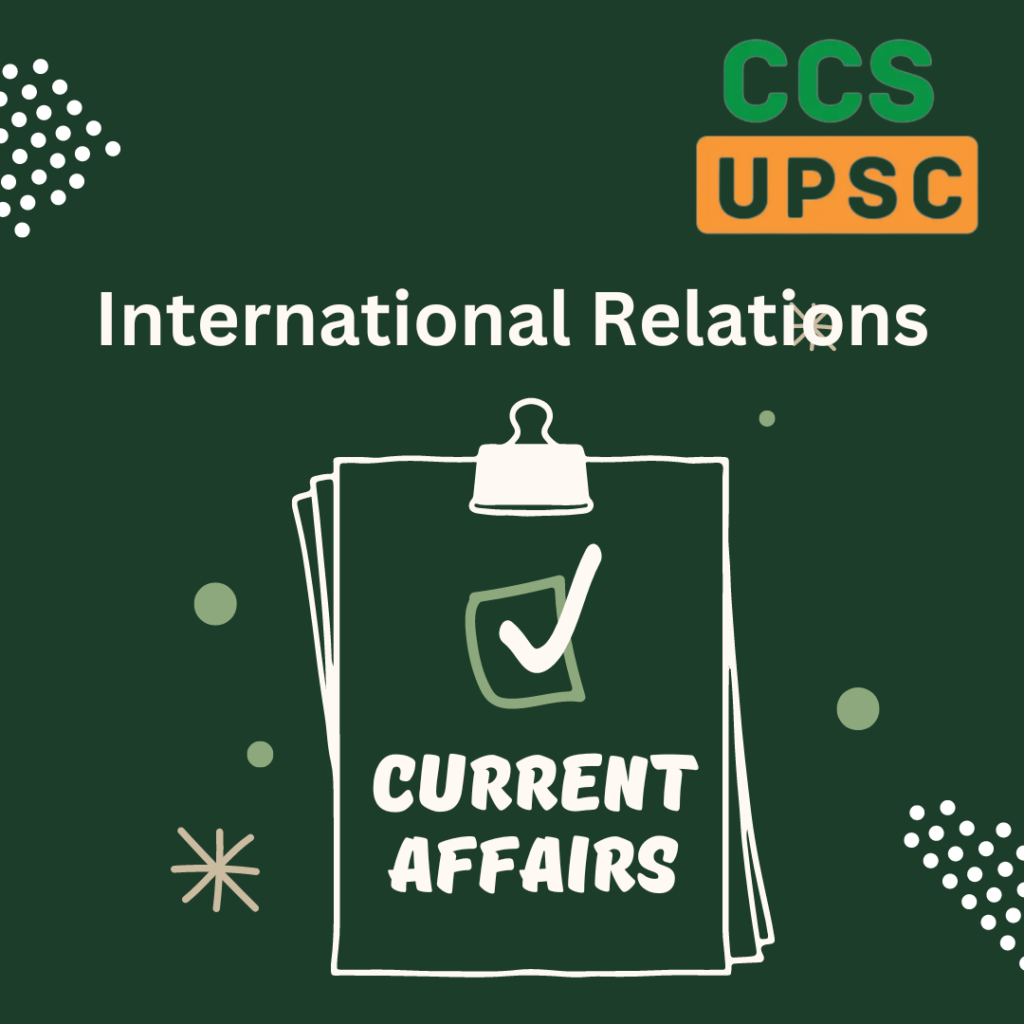In News
∙ Judges at the International Court of Justice(ICJ) opened two days of legal arguments in a case filed by South Africa accusing Israel of genocide in Gaza war.
About Issue
∙ South Africa had moved the ICJ, invoking the Convention on the Prevention and Punishment of the Crime of Genocide, 1948, against Israel, accusing it of committing genocide during its ongoing military campaign in Gaza.
∙ Both South Africa and Israel are signatories to the Genocide Convention of 1948.
∙ Earlier Instances : In 2019, the Gambia had approached the ICJ against Myanmar for its alleged genocide against the Rohingya community.
Stand of South Africa
∙ South Africa drew heavily upon statements and remarks attributed to Israeli officials and military leaders, to contend that one could infer genocidal intent from their words and deeds.
∙ It argued that the current operations should be seen in the context of the ‘Nakba’ of 1948, 75 years of ‘apartheid’, 56 years of occupation and 16 years of siege.
∙ Nakba, which means ‘catastrophe’ in Arabic, refers to the mass displacement of Palestinians during the Arab-Israeli war.
∙ South Africa highlighted the Israeli Prime Minister’s theory of ‘Amalek’ to justify the killing of Gaza residents
∙ Amalek, according to the Hebrew Bible, was a persecutor of the Israelites and it is the duty of Israelites to eliminate Amalekites.
∙ It has also accused Israel of causing hunger, dehydration, and starvation in Gaza by impeding sufficient humanitarian assistance, cutting off water, food, fuel, and electricity, and failing to provide shelter or sanitation to Palestinians in Gaza
∙ South Africa has sought a series of measures including the immediate suspension of Israel’s military operations in Gaza and to desist from the commission of any act within the scope of the Convention against the Palestinian people.
Israel’s counter the arguments
∙ Israel rejected any genocidal intent behind its ongoing campaign and argued that its response was legitimate and based on the norms of international law.
∙ It anchored its presentation on its right to self-defence.
∙ It claimed that its operations in Gaza were not aimed at destroying its people, but to protect them and that it was directed solely against Hamas and its allied groups and were aimed at removing Hamas’ capacity to threaten Israel.
∙ It rejected the charge that any remarks attributed to its Prime Minister or Defence Minister indicated any genocidal intent.
∙ Israel also put the blame on casualties on Hamas, claiming that its use of civilians as human shields was aimed at maximising harm to civilians.
Future Outlook
∙ A ruling on whether to issue provisional measures and, if so, what these measures will be, is expected within weeks.
∙ Proceedings instituted before the ICJ usually take years for disposal.
∙ Provisional measures are interim rulings of the ICJ aimed at preventing either party from doing irreparable harm to the main case.
∙ However, the ICJ has no means to enforce its own orders. It is possible for the UN Security Council to take measures, but it is subject to the veto power of permanent members.
∙ In the event of an adverse ruling, Israel may be banking on the U.S. to veto any attempt to enforce any such order.


